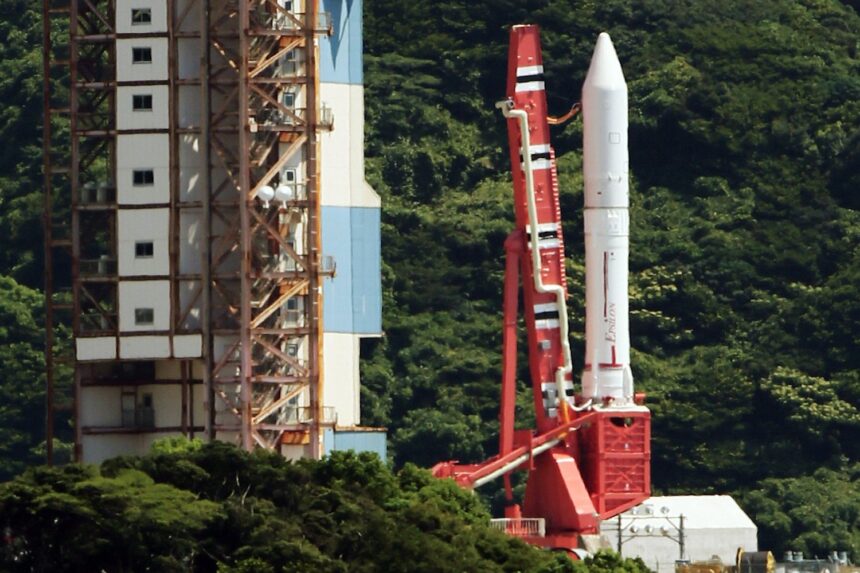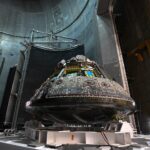Japan’s space agency, JAXA, had to abort an engine test for its Epsilon S rocket after it burst into flames. This marks the second explosion involving the solid-fuel rocket, further delaying its debut as JAXA works to determine the cause of the gigantic blast.
About 49 seconds into its combustion test on Tuesday, the second-stage motor of the Epsilon S rocket exploded, cutting the test short in what was supposed to be a two-minute test, according to Reuters. The explosion set fire to the Tanegashima Space Center in southwestern Japan, damaging the launch facility, but fortunately there were no reports of injuries.
🇯🇵 Major fire at Japan rocket test site pic.twitter.com/tlIOmOpyyo
— Byte (@ByteEcosystem) November 26, 2024
“We are sorry that we couldn’t meet everyone’s expectations…but a silver lining was that we found (the issue) at a ground test, before putting it for a flight,” Takayuki Imoto, JAXA’s Epsilon project manager told reporters during a media briefing after the failed test. It will likely take several months to investigate the cause behind the blast and take necessary countermeasures, Imoto added.
While the cause behind the explosion remains unclear, an incident like this has happened before. In July, 2023, an Epsilon S second stage engine exploded about one minute into what was supposed to be a two-minute ground test. Last year’s explosion was blamed on a melting piece of metal, damaging part of the engine.
That engine blast happened after the in-flight failure of an Epsilon 6 rocket, an earlier version of the launch vehicle. In October 2022, JAXA issued a self destruct command to an Epsilon 6 rocket after detecting that it was misaligned for separation and ignition of its third stage motor. The rocket was destroyed, along with eight commercial satellites included in its rideshare mission.
Epsilon S was being prepped for its debut flight sometime between the end of the year and March 2025. Japan’s Epsilon S rocket is a three-staged solid propellant launch vehicle, the latest in the series of Epsilon rockets which JAXA began developing in 2007 to gain access to the small satellite launch industry. Aside from the Epsilon 6 anomaly, the space agency’s previous five Epsilon rocket launches had all been successful following the launch vehicle’s debut in 2013.
JAXA is eager to see its Epsilon S rocket launch for the first time, hoping to secure its position in the space industry and get in on the growing market of launching satellites to orbit. It’s not clear how much longer Japan’s space agency will have to wait before Epsilon S can liftoff, but it will likely miss its original launch window.
Read the full article here












